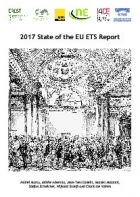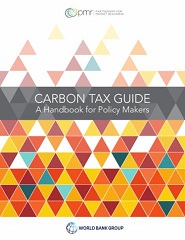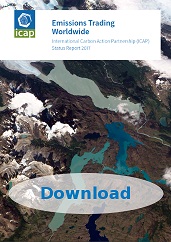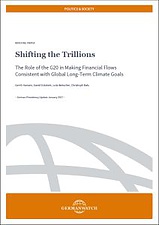Policing carbon markets
Carbon markets have emerged in recent decades as one of the most important tools for curbing industrial greenhouse gas emissions, but they present a number of novel enforcement challenges when compared
Carbon markets have emerged in recent decades as one of the most important tools for curbing industrial greenhouse gas emissions, but they present a number of novel enforcement challenges when compared
The purpose of this issue brief is to provide an overview of the latest movement of the emissions trading scheme (ETS), with a focus on the three key Asian carbon markets in Tokyo, China (esp. the pilots)
The EEA’s new reports, 'Annual European Union greenhouse gas inventory 1990-2015 and inventory report 2017’ and ‘Analysis of key trends and drivers in greenhouse gas emissions in the EU between 1990 and

The EU Emissions Trading System (EU ETS) has passed its 10th anniversary. As any other undertaking, it requires, periodically, an assessment regarding its well-functioning, and the delivery of its objectives.

Recent years have seen renewed and growing interest in policy instruments that put a price on greenhouse gas (GHG) emissions through the adoption of carbon taxes. While up until 2008 only a handful of

The International Carbon Action Partnership’s (ICAP) Status Report 2017, provides a testament to the evolution of emissions trading from textbook assumptions to the real world. With the launch of China’s
This report elaborates a strategy for phasing out coal in the European Union and its member states and provides a science-based shut-down schedule of coal power plants at the individual unit level, in
This report develops a roadmap on the consideration of establishment and operation of an emissions trading scheme (ETS) for Turkey. It is the first in a series of analytical reports, prepared for the World

This briefing paper describes how the G20 could enable a shift of international financial flows to low-carbon and climate-resilient development, as mandated by the Paris Agreement in Article 2.1c. It introduces
Basic materials such as steel, cement or aluminium are important inputs to our economies. However their production is responsible for the dominant share of industrial emissions and 16% of European greenhouse
The reform of the EU Emissions Trading System could hand more than €230 billion in subsidies to energy intensive industries, a new report from Corporate Europe Observatory shows. The Emissions Trading